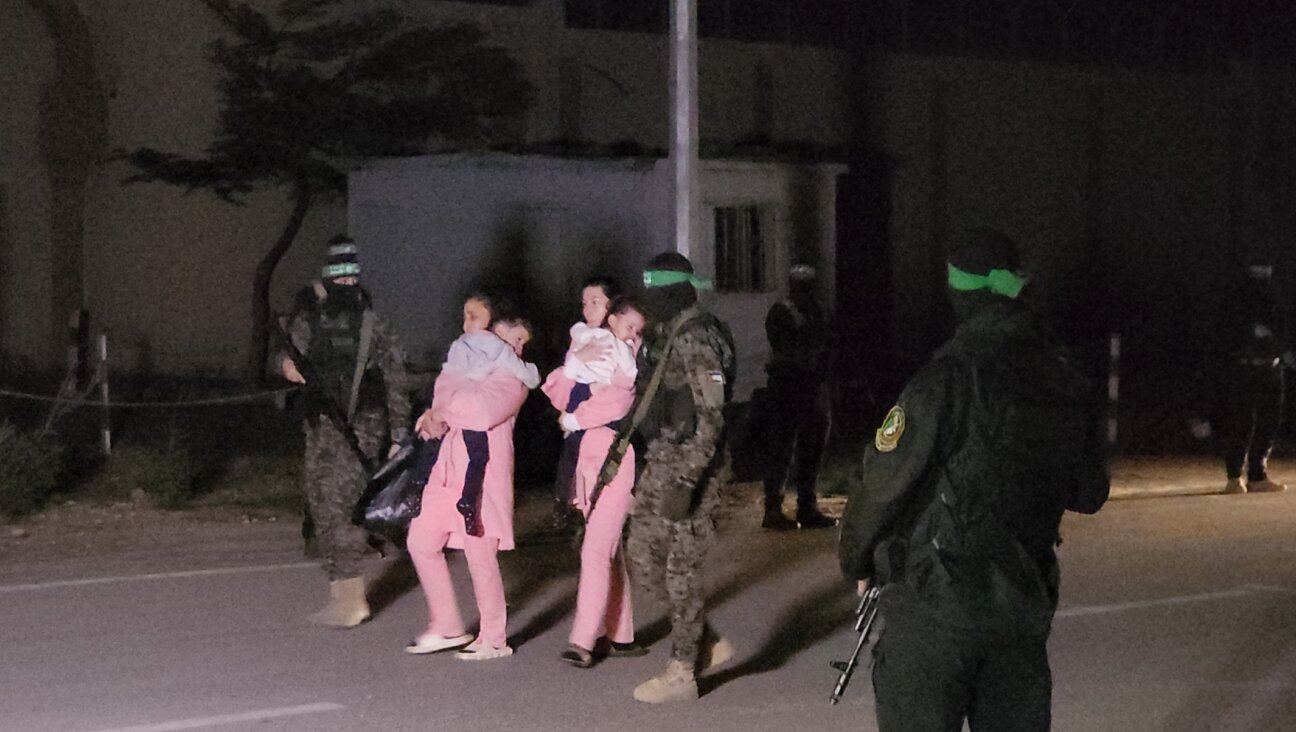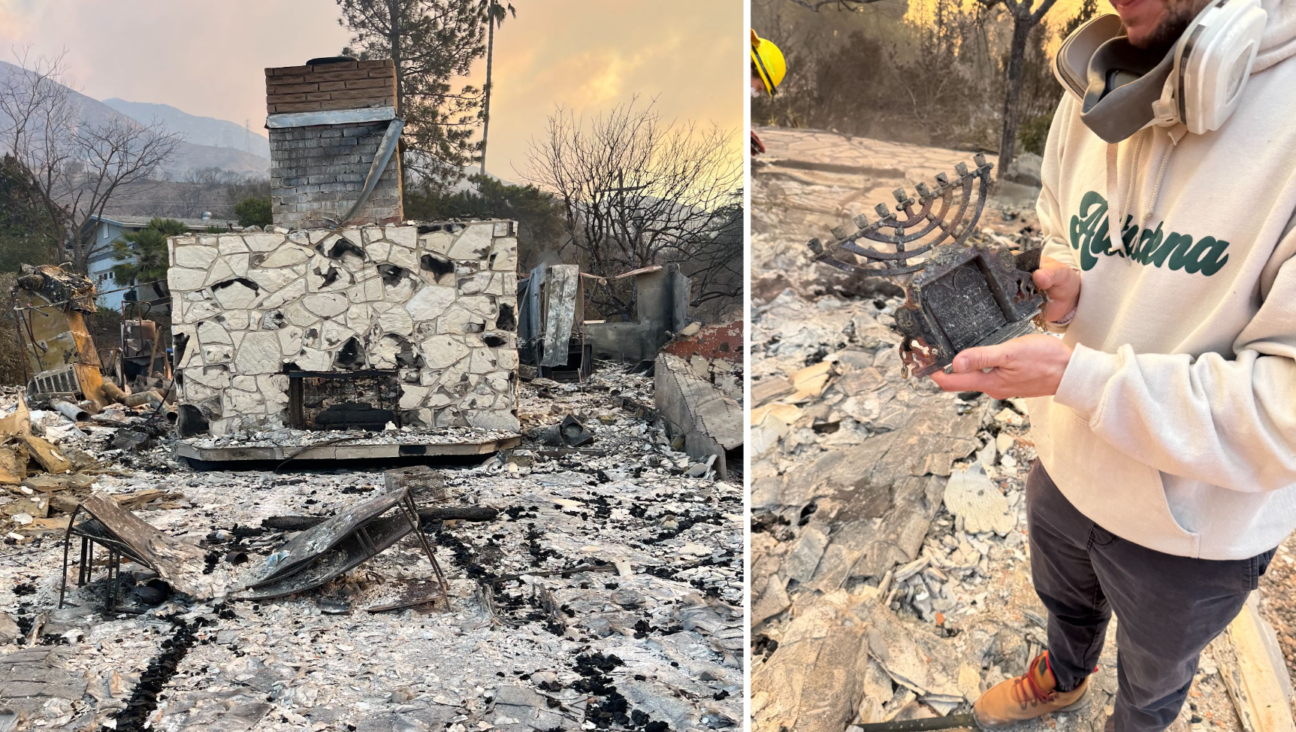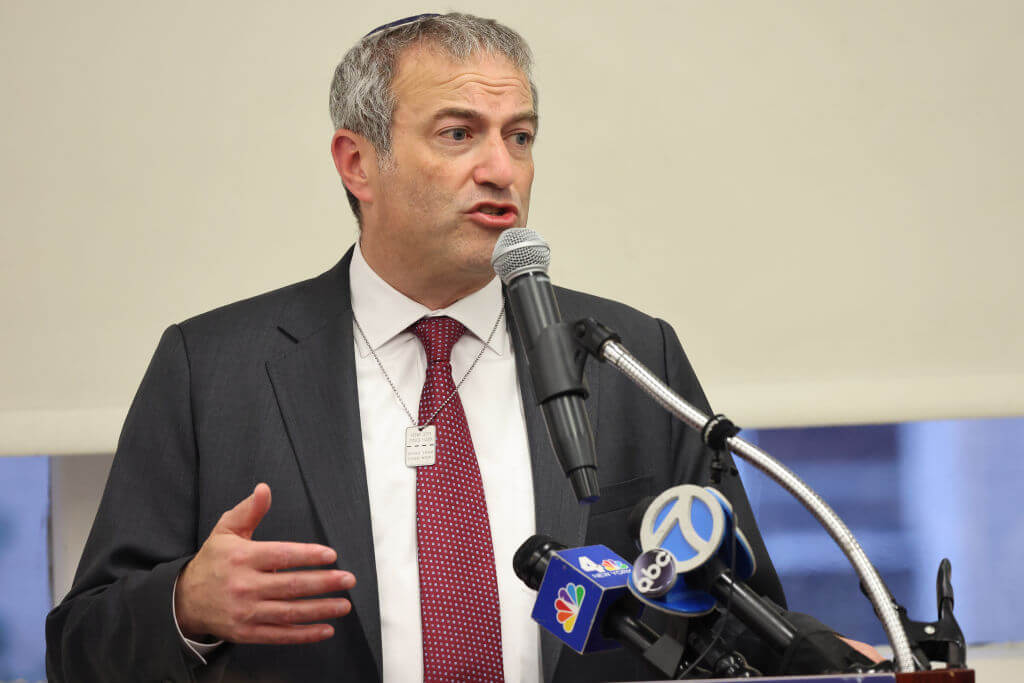Marseille Jews Split on Wearing Kippahs After Spate of Attacks

Representatives of the Jewish community of Marseille issued conflicting statements on whether Jews should hide their kippah in the southern French city following a spate of anti-Semitic stabbings.
Tzvi Amar, president of the local office of the Consistoire, the French Jewish community’s organization responsible for religious services, was quoted Tuesday by Le Figaro as saying Jews should “remove the kippah during these troubled times” because “the preservation of life is sacrosanct.”
But Michele Teboul, president of the local branch of CRIF – an umbrella group that represents French Jewish communities politically as a lobby – told JTA that she “could not support a measure which dials back hundreds of years during which Jews were able to practice their faiths and live freely as citizens of the French Republic.”
Jewish individuals “should decide whether to wear a hat on top of their kippah, depending on the situation, but removing one’s kippah seems unwarranted,” Teboul said.
Amar’s statement, which he said “turns his stomach” and is born of “grave circumstances that require extraordinary measures,” came after the stabbing of a Jewish man in Marseille on Tuesday, allegedly by a 15-year-old Muslim radical. He sustained minor injuries.
In November, a Jewish teacher was stabbed and seriously injured by a man who hurled insults at him along with two other men, one of whom was wearing a T-shirt with the logo of the Islamic State terrorist group. The previous month, a Frenchman of Algerian descent stabbed a Jewish man who was returning from synagogue and assaulted two others, including a rabbi.
Marseille has 80,000 Jews in a total population of approximately 850,000. About a third of its residents are Muslim, according to estimates.
A message from our Publisher & CEO Rachel Fishman Feddersen

I hope you appreciated this article. Before you go, I’d like to ask you to please support the Forward’s award-winning, nonprofit journalism so that we can be prepared for whatever news 2025 brings.
At a time when other newsrooms are closing or cutting back, the Forward has removed its paywall and invested additional resources to report on the ground from Israel and around the U.S. on the impact of the war, rising antisemitism and polarized discourse.
Readers like you make it all possible. Support our work by becoming a Forward Member and connect with our journalism and your community.
— Rachel Fishman Feddersen, Publisher and CEO























